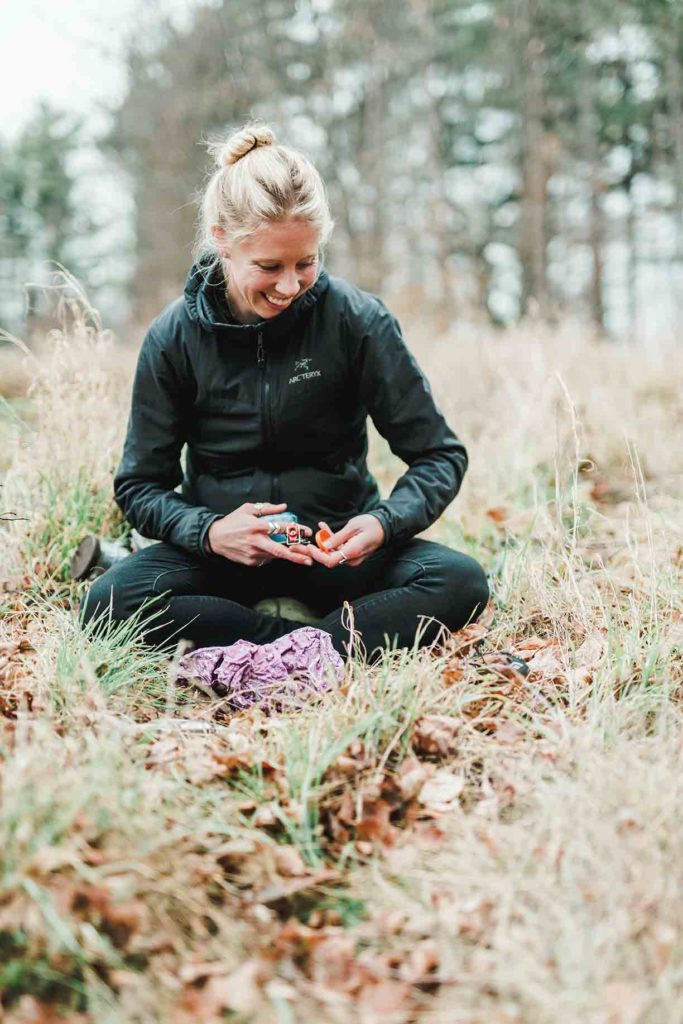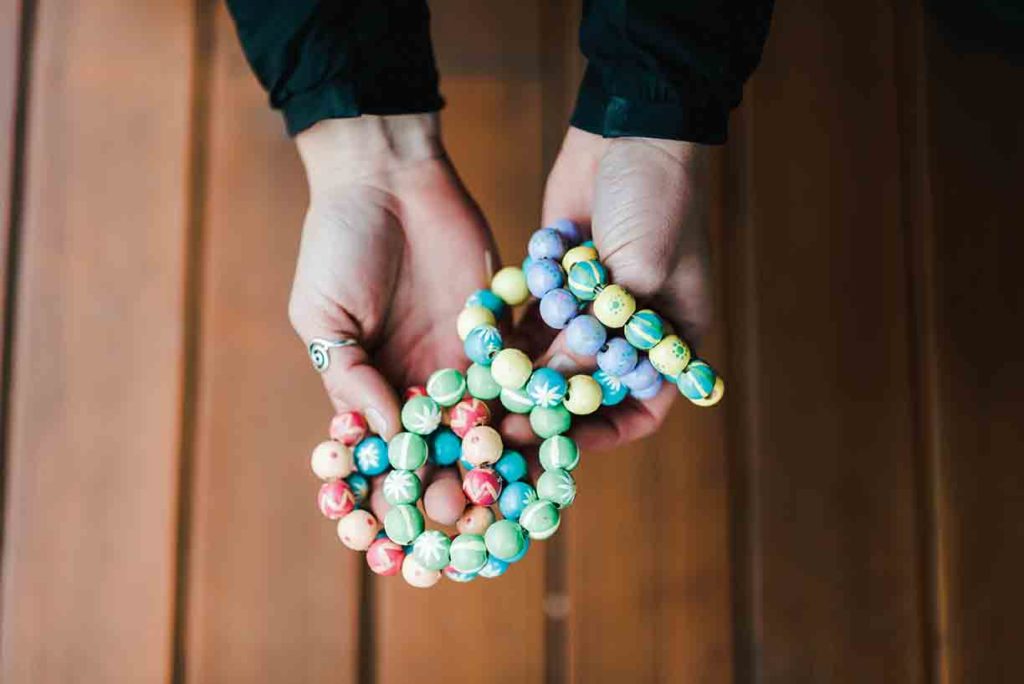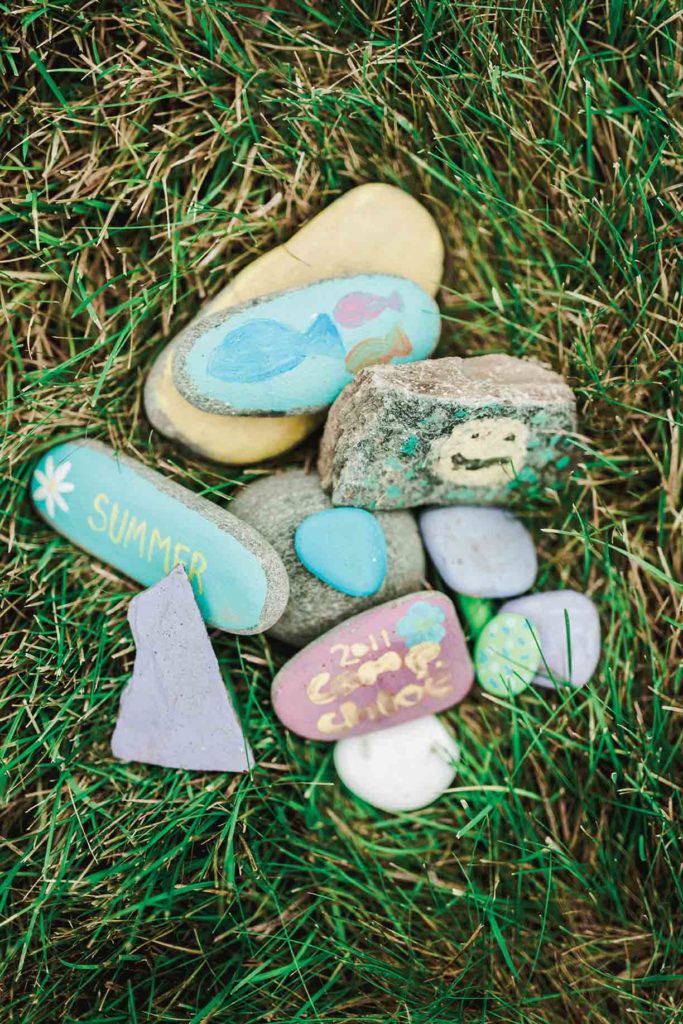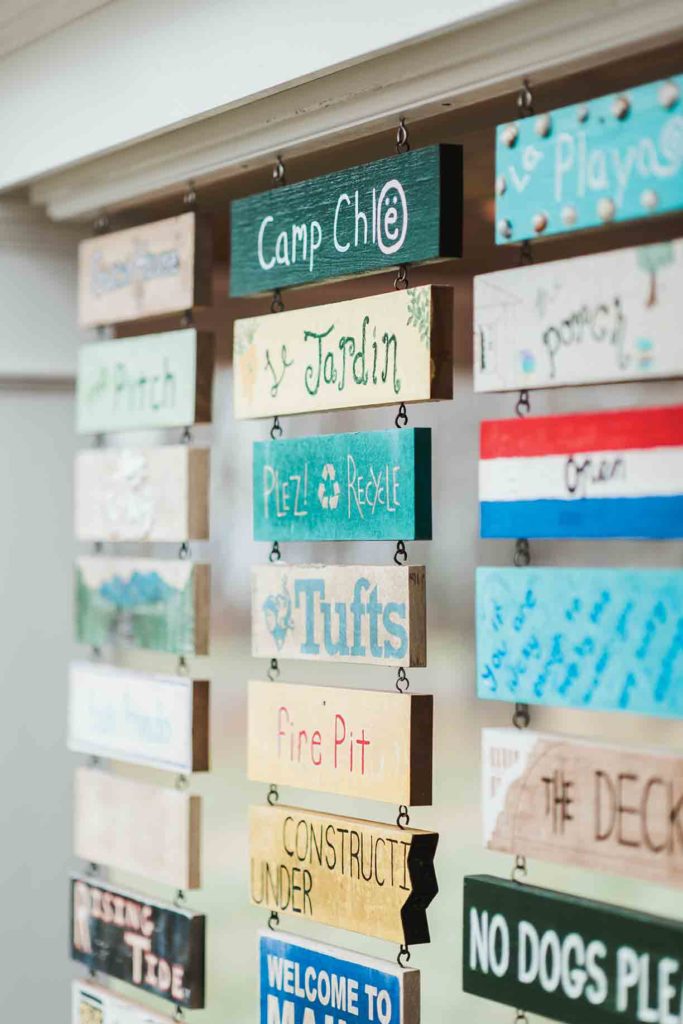Just Do It
From organizing a summer camp in middle school to hiking the Appalachian Trail, Chloë Rowse has charted her own path, and encourages girls to do the same

Chloë Rowse started her summer camp for girls as a 12-year-old in Falmouth to fund a trip to Germany. 
Rowse thru-hiked the entire Appalachian Trail in 2018.
Chloë Rowse was 12 years old when she started a summer camp for girls. Her German teacher at Maine Coast Waldorf School had assigned each student in the class a German pen pal, and after exchanging letters for months, Rowse decided she wanted to visit her pen pal in person. When she presented this idea to her parents, they surprised her by saying yes—but she would have to pay for the trip herself.
“It was like giving me the freedom, but also they didn’t expect me to go through with it. The extent of my bank account was a couple of dog-sitting jobs,” Rowse remembers. She had just taken a Red Cross babysitting certification course. “I came up with this idea that I was going to start a summer camp and make some money to pay for my trip to Germany.”
The first weeklong session of Camp Chloë was held at her family’s house in Falmouth in June 2006. Rowse planned all the activities based on what she thought her eight-year-old sister would like: arts and crafts, swimming, baking, games. One month later, she stepped off the plane in Cologne, alone, scanning the crowd for the girl who matched the photo in her hand.
Rowse had had no long-term plans for her camp, but the following summer the campers clamored to come back. Soon she added a second week and, a few years later, an overnight option. Last summer she ran five weeklong sessions of overnight camp at her great-grandparents’ fishing cottage in Wilton on Wilson Lake, with an assistant counselor she hired from a local high school. “I’ve been doing this for more than half my life,” says Rowse, now 26.

A typical day in the life of a camper begins with a 7:45 a.m. wake-up call and the option of a swim before breakfast. The campers then pack a lunch and depart on an adventure: a hike up a mountain, or crafts and another swim. After lunch, the girls take an hour’s rest, when they can read, draw, nap, or write. The afternoon involves a scavenger hunt or challenge, like staging a fashion show with clothing designed from plastic tablecloths, as well as an hour of free time, making a snack from scratch and perhaps canoeing or pickleball at the park across the lake. Dinner is cooked over the campfire (pizza on the grill is a favorite), and at night each girl retrieves her own hand-painted mug and chooses herbs for her tea. They sit in a circle and recognize each other with “shout-outs,” then end the day with story time, which frequently consists of reading from a Nancy Drew novel.
The rules at camp are simple: if you’re mean, you go home. Each day is planned down to 15-minute intervals, but the schedule can easily be tossed for whatever is most interesting in the moment. The girls are the decision makers. “They have a lot of choice, voice, and control at camp,” says Rowse. Older girls do all of their own meal planning and cooking. A hike up a mountain can turn into a blueberry expedition. Rowse believes in running her camp differently than the camps she went to, where every minute was scheduled. “Summer is a time to be free,” she says. “It’s these magical moments, pausing to do things that you wouldn’t otherwise do during the school year.”
Rowse is the kind of person who casually drops comments like, “I tried ice climbing for the first time last week on Mount Washington,” then looks at you as if she’s just said something completely ordinary. Since that first trip to Germany, she’s gone rock climbing and scuba diving in Thailand, crawled through the tunnels of the war museum in Vietnam, hiked the Rockies in Colorado, studied abroad in Italy, worked in Amsterdam, backpacked in Patagonia and Peru, and lived with a family in the Amazon rain forest. Rowse attributes her passion for adventure to the Maine outdoors, and her interest in travel to that first trip to Germany.

Mementos from Rowes’s camp, which she first held in 2006. 
Rowse thru-hiked the entire Appalachian Trail in 2018.
In 2017 Rowse announced to her parents that she was going to thru-hike the rugged 2,190-mile Appalachian Trail from Georgia to Maine—an idea that was met with considerably less enthusiasm than her plan to fly to Germany as a sixth-grader. She had never been camping alone before, nor had she backpacked for more than a week. But Rowse persisted. With some training hikes and a great deal of mental preparation under her belt, she began hiking on February 22, 2018, with a single goal: not to quit. A former cross-country runner and a current Nationals-level ultimate frisbee player, Rowse’s competitive edge kept her going. She relished the physical challenges of the trail, pushing herself to her limits. She ate cold oatmeal, peanut butter wraps, and cold instant mashed potatoes every day. Through it all, Rowse maintained a positive mindset. “It’s up to me how I think about it,” she says.
One night, Rowse got caught in a windstorm, and her tent collapsed. She fought her way out of the paper-thin ultralight fiber whipping around her, stuffed everything into her bag, and started walking. She found a shelter and pushed her way in among the sleeping bodies. Moments later it began pouring. She found out the next day there had been a tornado in the area.

Hand-painted signs from Camp Chloë. 
Rowse says she tries to channel her inner 12-year-old when planning her camp.
Thousands of people attempt the Appalachian Trail each year, but only about one in five hikers make it all the way. Rowse finished in 119 days—the 46th person to finish that year. Getting back home for Camp Chloë was her motivation, but her ideas of what the camp was were changing. “There was a lot of time to think about how I want to continue running camp,” Rowse says. “I came to the conclusion that, if I’m running it for just a select, elite group of kids who can afford it, [that’s not] what I want to do.”
When Rowse arrived home, she formed a nonprofit called Growing Routes to raise funds to make her camp more accessible. In 2019 ten girls attended on scholarship, and Rowse also ran a camp session for transgender youth. Summer 2020 will mark 15 years of Camp Chloë, but Rowse hasn’t lost track of that very first session at her parents’ house. When planning camp, she still tries to channel her inner 12-year-old. “That was the magic,” Rowse says. “It was planned by another kid.”
Rowse’s hope is that girls leave camp knowing they are capable of anything. “Hiking the AT, I had this mind-set of ‘I’m not a serious hiker, I can’t do that.’ But I can. Nobody would say a 12-year-old could start a camp, but I did, and it worked. Last year when I started a nonprofit I had no idea what I was doing, but I figured it out. I think not knowing things sometimes leads to bravery.”
If she had started Camp Chloë as an adult, Rowse believes, things might have been different. At age 12, she didn’t have anyone telling her she couldn’t—including herself. She just did it.

